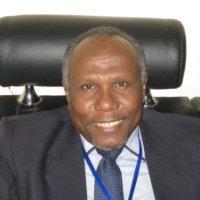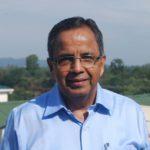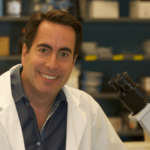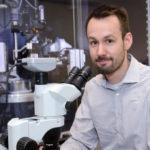Immunologist of the Month – 2017
Interviews with Immunologists over 2017. These Immunologists are at the cutting-edge of research and education, they have kindly offered to give us their time and insight into their research and studies.
December 2017
Our December Immunologist of the Month is Eltahir Awad Gasim Khalil, Professor of Pathology at the University of Khartoum.
Professor Khalil recently spoke to the Immunopaedia team about his research interests, particularly focusing on Leishmaniasis, how it evades host immunity and experimental Leishmaniasis vaccines.
Read more – Eltahir Awad Gasim Khalil Interview
November 2017
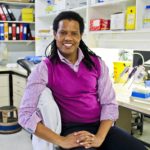 Our November Immunologist of the Month is Mohlopheni Jackson Marakalala, Senior Lecturer at the University of Cape Town and Visiting Scientist at the Harvard T.H Chan School of Public Health. Mohlopheni obtained his PhD from the University of Cape Town and completed two postdoctoral fellowships thereafter. His first fellowship was with Professor Gordon Brown at the University of Cape Town where he focused on innate immunology with a focus on Tuberculosis and HIV-related fungal infections. He then went to Harvard University where, under Professor Eric Rubin, he continued his immunology research focusing on Tuberculosis granulomas. Mohlopheni is currently a Wellcome Trust Intermediate Fellow in Public Health and Tropical Medicine. He is also a Fellow of the Next Einstein Forum.
Our November Immunologist of the Month is Mohlopheni Jackson Marakalala, Senior Lecturer at the University of Cape Town and Visiting Scientist at the Harvard T.H Chan School of Public Health. Mohlopheni obtained his PhD from the University of Cape Town and completed two postdoctoral fellowships thereafter. His first fellowship was with Professor Gordon Brown at the University of Cape Town where he focused on innate immunology with a focus on Tuberculosis and HIV-related fungal infections. He then went to Harvard University where, under Professor Eric Rubin, he continued his immunology research focusing on Tuberculosis granulomas. Mohlopheni is currently a Wellcome Trust Intermediate Fellow in Public Health and Tropical Medicine. He is also a Fellow of the Next Einstein Forum.
Mohlopheni spoke to the Immunopaedia team about Tuberculosis immunology and the role of granulomas in the disease.
Read more – Mohlopheni Jackson Marakalala Interview
October 2017
Narinder Mehra
Our October Immunologist of the Month is Professor Narinder Mehra. Professor Narinder Mehra is a researcher at the All India Institute of Medical Sciences. His research interest lies in all aspects of the human MHC, ranging from its potential role in defining biomarkers of disease associated genes, evaluating genetic diversity of HLA and other immune associated genes. Prof. Mehra recently published a free eBook on the clinical relevance of antibodies in solid organ transplantation. The book has 16 chapters that provide state of the art information under the following themes: (i) HLA sensitisation and matching strategies to improve clinical outcome (ii) technical, functional and clinical impact of HLA and non-HLA antibodies (iii) cellular aspects of antibody responses and others.
Prof. Mehra recently spoke to the Immunopaedia team about the immunology behind transplantation and how his research has contributed to the field.
Read more – Narinder Mehra Interview
September 2017
Juan Carlos Zúñiga-Pflücker
September’s Immunologist of the Month features Professor Juan Carlos Zúñiga-Pflücker, a Senior Scientist based at the Sunnybrook Research Institute in Toronto, Canada. In addition to his research site at Sunnybrook, Prof Zúñiga-Pflücker is also the Chair of the Department of Immunology at the University of Toronto and is a Canada Research Chair in developmental immunology. Prof Zúñiga-Pflücker is one of the leading researchers in developmental immunology and haematopoietic stem cells. His lab investigates T cell development as the cells enter the thymus, as well as the molecular signals present during lymphocyte differentiation. Most notably, the Zúñiga-Pflücker lab has developed the OP9-DL system, a novel coculture system of the OP9 cell line to induce differentiation of embryonic stem cells into haematopoietic progenitors, which subsequently develop into lymphocytes. In addition to developmental immunology research, Prof Zúñiga-Pflücker is an active member of the CanCURE (Canadian HIV Cure Enterprise) research consortium.
Prof Zúñiga-Pflücker spoke to Immunopaedia about his interest in T cell development and how his research is shaping our knowledge of key mechanisms of developmental biology.
Read more – Juan Carlos Zúñiga-Pflücker Interview
August 2017
Bob Hancock
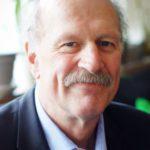 Bob Hancock is the Director of the Centre for Microbial Diseases and Immunity Research (CMDR) and a professor at the University of British Columbia. Dr. Hancock and his laboratory focus on new therapeutic strategies and antibiotic resistance. Along with numerous other awards, he has received the Prix Galien, the Highest Award for Canadian Pharmaceutical Research and Innovation. We spoke to Dr. Hancock about the threat of antibiotic resistance and his work on finding alternative treatments.
Bob Hancock is the Director of the Centre for Microbial Diseases and Immunity Research (CMDR) and a professor at the University of British Columbia. Dr. Hancock and his laboratory focus on new therapeutic strategies and antibiotic resistance. Along with numerous other awards, he has received the Prix Galien, the Highest Award for Canadian Pharmaceutical Research and Innovation. We spoke to Dr. Hancock about the threat of antibiotic resistance and his work on finding alternative treatments.
Read more – Bob Hancock Interview
July 2017
Gary Entrican
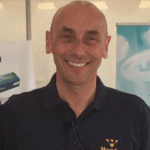 This month we focus on Gary Entrican, a veterinary immunologist and principal research scientist based at the Moredun Research Institute in Scotland.
This month we focus on Gary Entrican, a veterinary immunologist and principal research scientist based at the Moredun Research Institute in Scotland.
Gary spoke to Immunopaedia about conducting studies in ruminants as well as the immunology behind chlamydia infections in sheep and cattle.
Read more – Gary Entrican Interview
June 2017
Dhafer Laouini
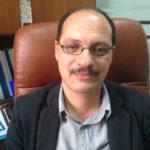 Dhafer Laouini is a researcher at the Institut Pasteur de Tunis in Tunisia. After completing his PhD, he held postdoctoral positions at the Institut Pasteur in France and the Harvard Medical School in the USA. His main research focus is on leishmania host-pathogen interactions.
Dhafer Laouini is a researcher at the Institut Pasteur de Tunis in Tunisia. After completing his PhD, he held postdoctoral positions at the Institut Pasteur in France and the Harvard Medical School in the USA. His main research focus is on leishmania host-pathogen interactions.
We recently spoke to Dhafer about leishmaniasis and how his research has aided in understanding the immune response towards leishmania and possible vaccine strategies against it.
Read more – Dhafer Laouini Interview
May 2017
Rajesh Ringe
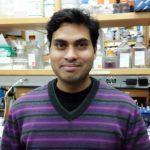 Rajesh Ringe is a Postdoctoral Associate at Cornell University in New York. Rajesh obtained his PhD from Pune University in India and then moved to Cornell University to a laboratory run by Professor John Moore.
Rajesh Ringe is a Postdoctoral Associate at Cornell University in New York. Rajesh obtained his PhD from Pune University in India and then moved to Cornell University to a laboratory run by Professor John Moore.
Rajesh took time out to chat with the Immunopaedia team about his work in HIV immunogen design and where that field is headed.
Read more – Rajesh Ringe Interview
April 2017
Hatem Masmoudi
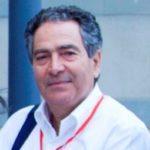 Hatem Masmoudi is a Profressor in Tunisia at University of Sfax. He studied towards his MD and PhD at the Faculty of Medicine of Sfax and the Faculties of Science at Sfax and Tunis. He then went on to train at the Necker Hospital and Pasteur Institutes in Paris.
Hatem Masmoudi is a Profressor in Tunisia at University of Sfax. He studied towards his MD and PhD at the Faculty of Medicine of Sfax and the Faculties of Science at Sfax and Tunis. He then went on to train at the Necker Hospital and Pasteur Institutes in Paris.
Prof. Masmoudi heads a research unit which focuses on autoimmunity and immunogenetics. He is currently the President of the Federation of African Immunological Societies.
Prof. Masmoudi took time out to chat to the Immunopaedia team about autoimmunity and how his research has advanced the field.
Read more – Hatem Masmoudi Interview
March 2017
Michelle Letarte
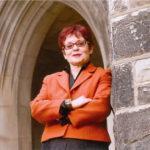 Michelle Letarte is Senior Scientist Emeritus at the Hospital for Sick Children in Toronto, Canada. She studied towards a BSc at l’Université Laval and PhD at the University of Ottawa. Michelle took up a post-doctoral fellowship in the Biochemistry Department at the University of Oxford working with Nobel Laureate Professor Rodney Porter. She set up her first laboratory in 1975 at the Ontario Cancer Institute in Toronto and subsequently led a laboratory at the Hospital for Sick Children. Michelle is passionate about educating and mentoring immunology students which she does through her role in the International Union of Immunological Societies Education Committee.
Michelle Letarte is Senior Scientist Emeritus at the Hospital for Sick Children in Toronto, Canada. She studied towards a BSc at l’Université Laval and PhD at the University of Ottawa. Michelle took up a post-doctoral fellowship in the Biochemistry Department at the University of Oxford working with Nobel Laureate Professor Rodney Porter. She set up her first laboratory in 1975 at the Ontario Cancer Institute in Toronto and subsequently led a laboratory at the Hospital for Sick Children. Michelle is passionate about educating and mentoring immunology students which she does through her role in the International Union of Immunological Societies Education Committee.
Michelle took time to talk the Immunopaedia team about her research on the role of endoglin (CD105) in Hereditary Hemorrhagic Telangiectasia type 1 disorder.
Read More – Michelle Letarte Interview
February 2017
Jean-Philippe Julien
Jean-Philippe Julien is a Canadian early-career investigator who focuses on the molecular structure and function of glycoproteins. Jean-Philippe studied towards a Bachelor of Science in Biochemistry at McGill University and went on to pursue his PhD studies in Biochemistry at the University of Toronto. He undertook a Postdoctoral fellowship at the Scripps Research Institute, USA, where he was the first person to solve the high resolution crystal structure of a modified HIV Envelope trimer. Jean-Philippe is now a researcher and Assistant Professor at the Hospital for Sick Children and the University of Toronto.
Jean-Philippe took time out speak to the Immunopaedia team about his structural research on B cells receptors and how this work has impacted the knowledge of immune system function and its application in disease models such as cancer.
Listen here – Jean-Philippe Julien Interview
January 2017
Faith Osier
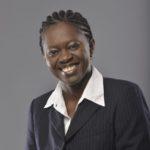 Faith Osier is a talented researcher in the field of Malaria Immunology. She got her MBChB degree from the University of Nairobi and completed her internship at Coast General Provincial Hospital. Faith then took up a position as a Medical/Research Officer at KEMRI-Kilifi. This is where her research career began. She went on to graduate with distinction in Human Immunity at the University of Liverpool and obtained her PhD from the Open University, UK. Faith now runs labs at both KEMRI-Kilifi, Kenya and Heidelberg University Hospital, Germany. Faith has recently been appointed the Vice-President of the International Union of Immunological Societies.
Faith Osier is a talented researcher in the field of Malaria Immunology. She got her MBChB degree from the University of Nairobi and completed her internship at Coast General Provincial Hospital. Faith then took up a position as a Medical/Research Officer at KEMRI-Kilifi. This is where her research career began. She went on to graduate with distinction in Human Immunity at the University of Liverpool and obtained her PhD from the Open University, UK. Faith now runs labs at both KEMRI-Kilifi, Kenya and Heidelberg University Hospital, Germany. Faith has recently been appointed the Vice-President of the International Union of Immunological Societies.
Faith took time out to speak to us about immunity to malaria and the challenges of making an effective preventative vaccine against the disease.
Read More – Faith Osier Interview






